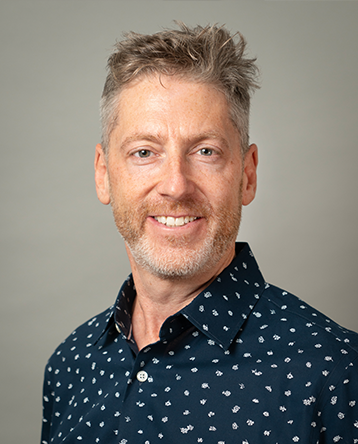Kelvin Gregory
Professor, Civil and Environmental Engineering
Professor, Civil and Environmental Engineering

Kelvin B. Gregory is a professor in the Department of Civil and Environmental Engineering at Carnegie Mellon University in Pittsburgh, Pennsylvania. His research explores the microbiology, ecology, and fundamental interactions between bacteria and their physical and chemical environment.
Gregory has a B.S. degree in biological systems and agricultural engineering from the University of Nebraska and a Ph.D. in civil and environmental engineering from the University of Iowa. He studied microbial diversity and ecology at Woods Hole Marine Biological Laboratory and completed postdoctoral studies at the University of Massachusetts Environmental Biotechnology Center.
His current research interests lie in produced water management, environmental nanotechnology, and geologic carbon sequestration and microfluidic cell sorting.
2002 Ph.D., Civil and Environmental Engineering, University of Iowa
1999 MS, Civil and Environmental Engineering, The University of Iowa
1995 BS, Biological Systems and Agricultural Engineering, University of Nebraska
Civil and Environmental Engineering
Esteban Londono, a doctoral candidate, has recently earned the prestigious Ruth Furman Miller and David H. Miller Presidential Fellowship within the Department of Civil and Environmental Engineering. He is currently applying his research to develop models for detecting SARS-CoV-2 in simulated wastewater data to facilitate early outbreak detection.
Civil and Environmental Engineering
Jordan Joseph became an Associate Fellow of The National GEM Consortium in 2020, a program dedicated to increasing the representation of underrepresented groups in graduate engineering and science studies. Joseph's research centers on pathways for residential decarbonization and their impact on vulnerable communities.
Engineering and Public Policy
Carnegie Mellon University's Greta Markey (BS '22) has been named a recipient of the highly competitive Marshall Scholarship, which is awarded to less than 50 Americans each year to fund graduate education in the United Kingdom. She is the fifth CMU student to receive the award since 1955.
Civil and Environmental Engineering
Joseph researches pathways for residential decarbonization and their impacts on vulnerable communities.
CMU Engineering
Carnegie Mellon researchers have developed a novel device that separates blood cells using sound waves.
New Atlas
A group of students from the CMU chapter of Engineers Without Borders (EWB) has turned to vertical farming as a way to tackle food poverty. By experimenting with LED lights that flicker at different speeds, the group is attempting to find how much light is necessary to grow the biggest plant, using the least amount of energy.
CMU Engineering
CMU Engineers Without Borders students are pioneering a brand-new approach to indoor agriculture—and it all starts with LED lights.